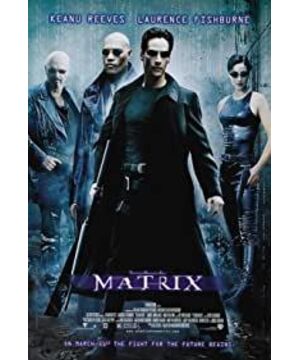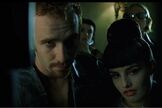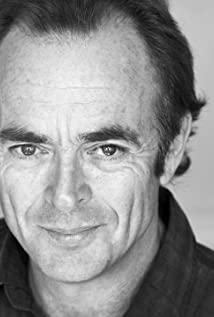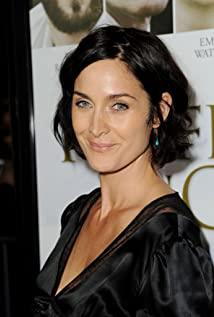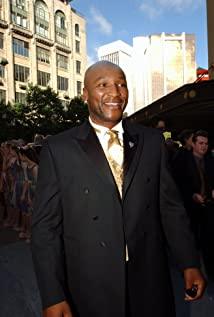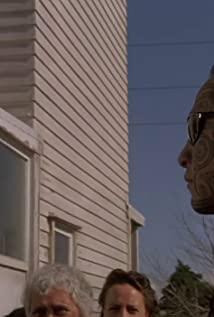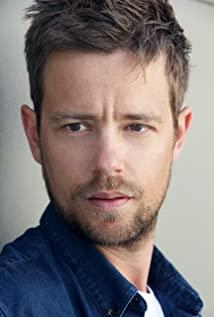The plot of The Matrix is difficult to understand, and the film incorporates a lot of philosophical elements, such as existentialism, structuralism, fatalism, nihilism, and so on. There are many posts on the Internet that analyze the plot. What I want to discuss here is not the plot, but on the assumption that the reader is familiar with the movie, why staying in the Matrix is a reasonable choice.
Most people hope for the existence of God, even some atheists (hope does not mean believing). Because we hope that our existence is meaningful, we hope to have an almighty power to take care of ourselves, and we hope to build a better world under the guidance of God. What are the attributes of God? Different religions have the same goal in different ways: God is the creator; God is omniscient; God is omnipotent; most importantly, God cares about mankind. What attributes should a beautiful world have (here refers to the real world, not the simulated Matrix)? This world should be highly automated; resources are inexhaustible; security is absolutely guaranteed; human beings can obtain high-quality material and spiritual life without hard work.
Then, we will find that the function of the machine relative to the Matrix in the movie is almost the same as that of the god: the machine created the Matrix and has the ability to create different versions of the Matrix. The machine controls 99.99% of Matrix's information and controls 99 in Matrix. 99% of events develop. Even Morpheus, Trinity, the hackers’ information and actions are under control, because the prophet knows and guides them, and the prophet is actually a program of Matrix. Probably the only destabilizing factor is the viral agent Smith. The most important point is that the machine definitely cares about the lives of humans in Matrix. Because machines rely on the human body to generate electricity, and the better human beings live in Matrix, they will live longer and generate more electricity in reality. It can be seen from the first movie that the first version of Matrix was made like a heaven. It was just because the people in it were too perfect to believe that it led to the collapse of the system. But it can be seen that machines have always wanted to make humans happier in Matrix, but later discovered that moderate suffering is necessary. On the other hand, the real world in the movie is actually very beautiful. Human beings don't have to worry about anything from birth to death. The life-sustaining nutrients are directly delivered to the body by the machine, which is truly fully automated. There is absolute safety in staying in a sealed cabin. Everyone is "work" as long as they are alive. While generating electricity to feed machines, they are also feeding humans. This "job" does not require a single bit of effort. While the body is "working" in reality, the brain can also enjoy high-quality material life in the virtual world (material enjoyment in the final analysis is just sensory stimulation, not necessarily happening in reality) and spiritual life (you can also learn in Matrix) , Can think, can have a variety of human emotions, and these brain activities do not distinguish reality or not, as Descartes said "I think, therefore I am"). This kind of life is like playing simulation computer games every day while being able to learn knowledge and support yourself and others, why not do it? But it’s different if humans insist on escaping from Matrix. After being separated from the machine, humans can only hide in the ground. Their living conditions are bad, and they are always in danger of being killed by the machine. Inspiring to liberate human beings found that many people did not want to be liberated and died halfway through. Many companions have suffered both materially and spiritually. And once an all-out war with the machine breaks out, 90% will lose, and even if they can win, they will face an energy crisis, and they will not be able to feed so many liberated people. Therefore, humans should not only stay in the Matrix, but also choose to stay in the Matrix when they know they are in the virtual world created by the machine, and regard the role of the machine as the role of God and the world outside the Matrix. An ideal real world with full automation. If humans can readily accept this kind of life, they can also ask the machine to create its favorite The world, or let the machine send itself a steady stream of knowledge (like Neo spent 10 hours being a martial arts master). As long as you are generating electricity for the machine, the machine will certainly meet your various requirements. In this way, humans and machines coexist in harmony, and everyone lives in their own paradise, which can be described as great harmony.
So, what is the reason to get rid of Matrix? First of all, there is a fundamental difference between a machine and a god. The difference lies in the origin and purpose. Gods are considered to be eternal, and machines are made by humans. God helps mankind out of the perfect divinity, and machines help mankind in order to obtain energy for survival. Therefore, human beings can be reconciled to being ruled by gods and not reconciled to being ruled by machines. But from the discussion in the previous paragraph, it can be concluded that although gods and machines have different origins and purposes, their functions to humans are the same, and what is really important to humans is not their function? Machines can have low origins and selfish purposes, but they will not affect human life in the slightest. Therefore, there is only a conceptual difference between a machine and a god, and the conceptual difference can be discarded as a prejudice. For example, after Europeans colonized the Americas, they discriminated against local blacks. They didn't want to let blacks live better than themselves, let alone accept blacks into the ruling class. And isn't this concept called "racial discrimination" being discarded as a prejudice? If we create machines, we still think machines are inferior when they are smarter than us, and we are unwilling to accept this kind of rule when they can rule in an orderly manner and when they can develop harmoniously. This can also be regarded as discrimination or prejudice. From another perspective, the machine was originally made by humans, and humans can take the machine city as the crystallization of human wisdom and be proud of it.
However, the core reason for leaving Matrix is the human yearning for freedom. But do we really understand the meaning of "freedom"? The definition of "freedom" is a never-ending topic in philosophy. There are two main definitions. The first type: Freedom means being able to do what you want to do. The problem with this definition is that it ignores the freedom of consciousness. If what you think is not under your control, then even if you can do what you want to do, you should not be considered free, otherwise the hypnotized person is also free. The second type: Freedom refers to the ability to choose. I think this definition is better than the first one, and treat it as the definition of freedom to be discussed next.
Obviously, people in Matrix are not free. The machine did not give humans the ability to choose to leave the Matrix, because the machine did not provide the true information of the Matrix, and sent agents to hunt down those who knew the true information. But after escaping from Matrix, will people living in Zion be free? Far from it. Zion is a huge underground prison with poor conditions, and the ability of the people in it to choose is greatly limited. It seems that the only place where their freedom is stronger than that of the people in Matrix is that they are not bound by machines, but in fact this is not true. There is a very important dialogue in the second part of the film. Councillor Harmann takes Neo to visit Zion. In the engineering center, Harmann asked Neo: "Here we also use machines. What is the difference with the people in Matrix?" Neo said: "Here people control machines, not machines control people... We can think about these machines. It's off." Harmann replied: "If it is off, what about the lighting system, air circulation system, and water supply system?" Neo hesitated: "You mean people need machines, and machines also need people?" It can be seen that even in Zion Humans and machines are also interdependent. Just like the relationship between humans and the machine city in Matrix, humans did not choose to be independent of machines.
Aside from movies, I think that people have no freedom in a broader sense. At any time and in any situation, there are two factors that determine a person's thoughts and behaviors in the final analysis: genes and past experiences (to be more precise in English: the collection of past experiences). Genes are obviously not what we can choose. Our experience at birth is determined by genes and the external environment at the time, and it is not something we can choose. Since the initial experience is not what we choose, and the future experience is determined by genes and previous experiences, we can use mathematical induction to conclude that all past experiences are not what we can choose. And because our thoughts and behaviors at any time are determined by genes and past experiences, our thoughts and behaviors at any time are not something we have the ability to choose. Subjective initiative is actually an illusion, because it itself is determined by genes and past experiences. For example, my "subjectively" idea to study hard is that my genes are eager to be recognized by others, eager to gain importance, eager to realize value, etc. and in the past experience, if you don’t learn, you will be despised by teachers and parents, and you can’t make fun if you don’t learn. It is determined by the experience and lessons of computers and so on. When we seem to have the freedom to choose, in fact, given our genes and past experiences, the choice we will make is the only one. For example, I go to buy ice cream, there are many flavors to choose from, the first case: I love chocolate by nature, so I choose chocolate flavor; the second case: I love chocolate by nature but I just ate it yesterday The truck is tired of chocolate, so this time I chose vanilla; the third case: I love chocolate by nature but my mother beats me every time I choose chocolate, so I chose vanilla. It can be seen that the choice I make in any situation is determined by the combination of genes and past experience. So although on the surface it seems that I have many choices, the choice I will make is the only one, and the decisive factor is beyond the control of my will, so in the final analysis I have no ability to choose, and I have no freedom. (In fact, the prophet also said to Neo in the second part of the movie: "You didn't come here to make the choice. You already made it. You came here to undertand WHY you made that choice.")
It needs to be pointed out that my view is different from fatalism. I don't believe in fate. Quantum physics has proven the existence of randomness in nature, overturning the view that classical mechanics can calculate the entire future by grasping all the information at a certain moment. At a given moment and environment, a person’s genes and past experience will determine his behavior, but his future thoughts and behavior are unknown, because the external environment he will encounter in the future is uncertain. Taking a step back, suppose that people also have inherent uncertainty when making decisions, but this uncertainty is also not within the control of human will, so people still have no freedom.
Back to the movie, since there is no freedom without Matrix, this core reason of "resisting for freedom" is also invalid.
In summary, humans should choose to stay in Matrix. This is not evasion, weakness, or compromise, but an optimal choice at both the utilitarian level and the ideological level.
View more about The Matrix reviews


